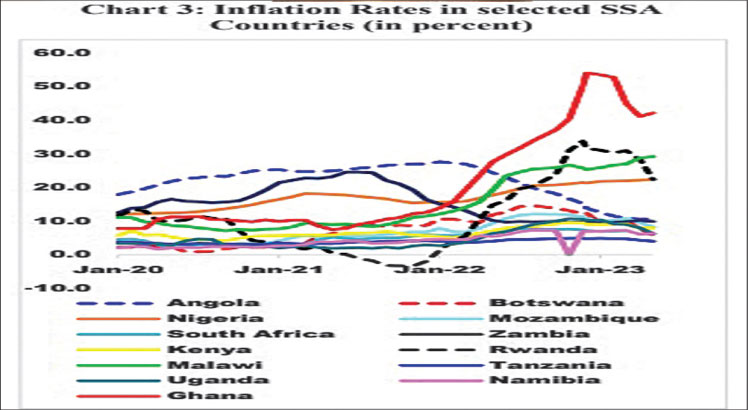Food prices threaten Inflation outlook
The Reserve Bank of Malawi (RBM) says the prevailing rising food prices threaten the country’s inflation outlook for the year.
In its May Market Intelligence Report published on Monday, RBM decried the ever-rising food costs, saying they could delay the return of inflation to the central bank’s target of 24.5 percent.
Reads the report in part: “The slow progress on inflation means that monetary policy may be needed to remain tight for an extended period of time.
“The Reserve Bank of Malawi will, therefore, continue to monitor developments closely and stand ready to act as and when appropriate.”

RBM said that price stability is a catalyst for increased production that leads to high economic growth and is also necessary for sustained financial sector stability.
In an interview yesterday, economic statistician Alick Nyasulu said the rise in inflation is expected given the country’s food situation outlook coupled with external factors that traditionally affect inflation.
He said: “Fertiliser was not easily accessible to most farmers. This. coupled with a shambolic Affordable Inputs Programme, also affected farmers who could access it at market prices.
“On the other hand, with Cyclone Freddy, crops were destroyed in the Southern Region. All this will continue to put pressure on food prices and we should expect further surge in inflation unless there is a deliberate intervention by authorities to flood the market with maize.”
Nyasulu said there is also a likelihood of bank interest rates going up.
In April, RBM raised the policy rate from 18 percent to 22 percent due to rising inflation.
In Malawi, maize, as part of the food component, accounts for about 53.7 percent of the consumer price index, an aggregate basket of goods and services used for computing inflation.
The inflation rate, at 29.2 percent as of May, is already above the central bank’s projection of the headline inflation at 24.5 percent this year.
Overall, inflation has risen without interruption from 7.6 percent in August 2020 to 29.2 percent in May this year, mainly on account of rising food inflation, according to National Statistical Office (NSO) data.
According to the NSO data,food inflation rate rose to 38.8 percent from 25.5 percent during a similar period last year.
Consumers Association of Malawi executive director John Kapito in an interview yesterday said consumers are worse-off than they were in the past year owing to the rise in commodity prices that have eroded their incomes.
He said: “Consumers are witnessing the sharpest rise ever seen and sadly the trend seems to continue as the country seems to have no strategies to calm it.
“There seems to be no room for deliberate strategies to assist consumers as our economy does not have any coping mechanisms for consumers and more especially the poor.”





